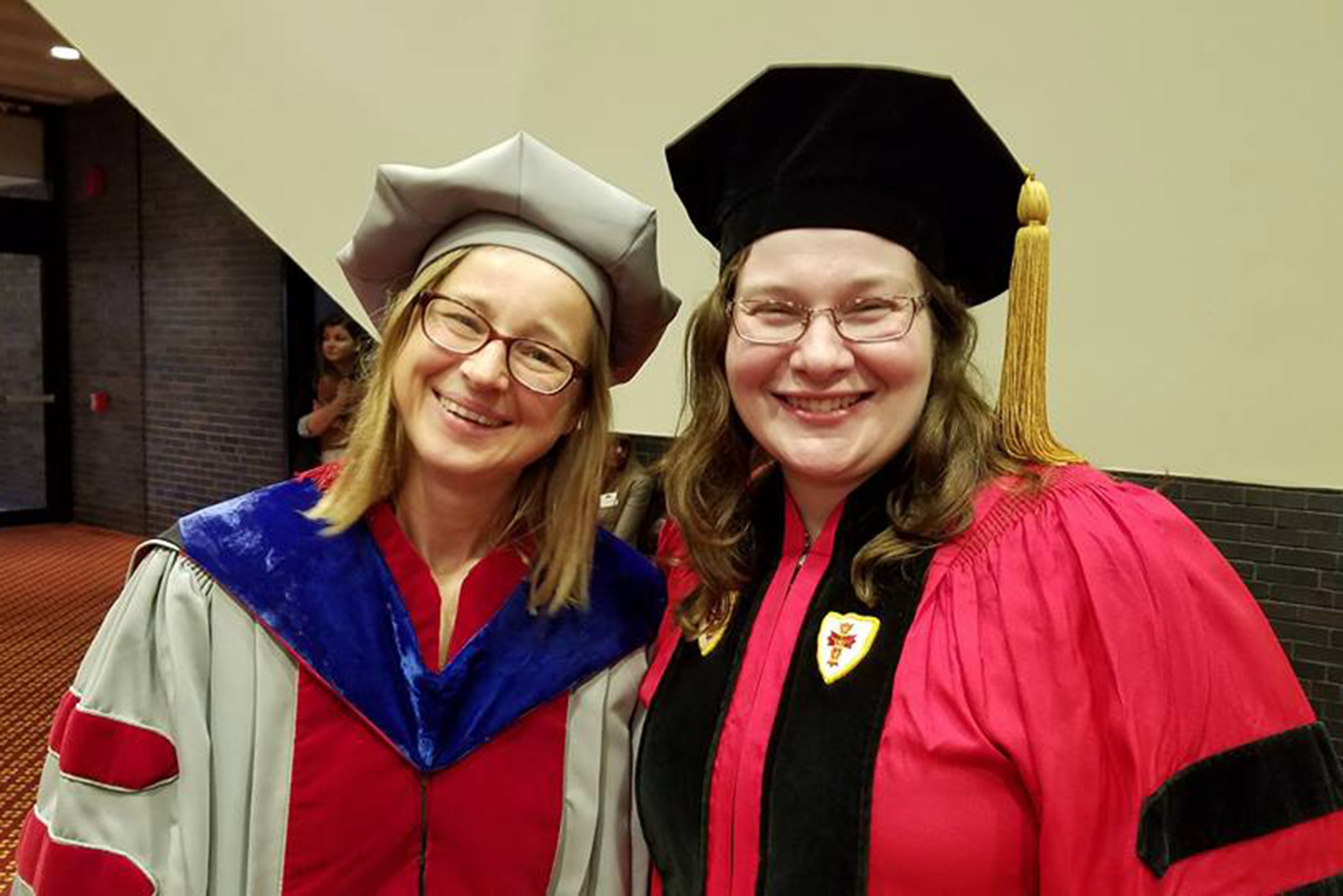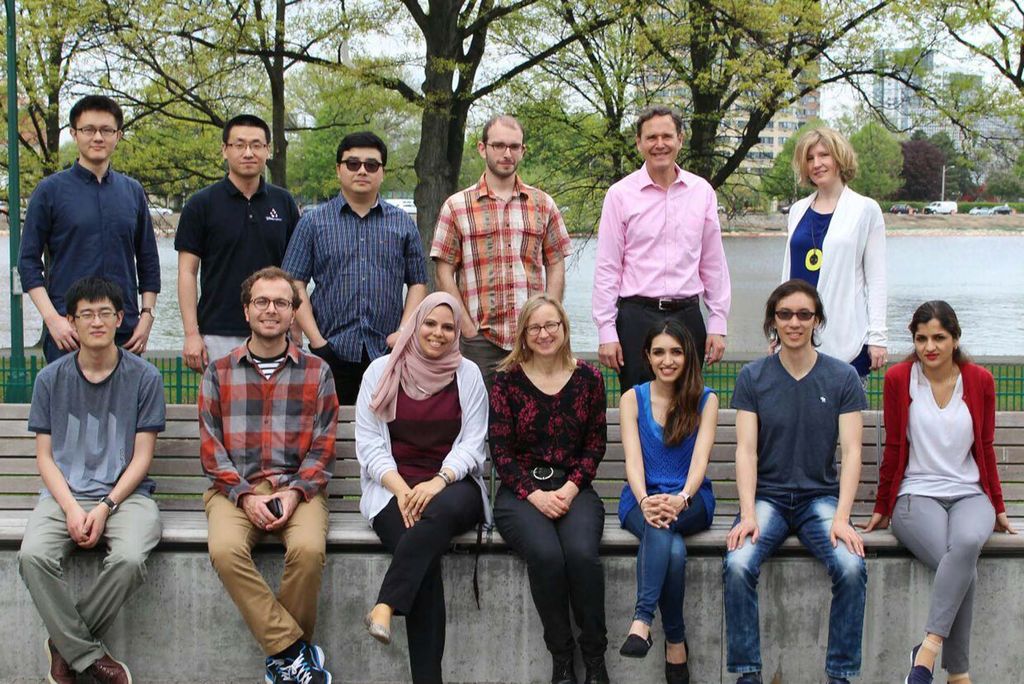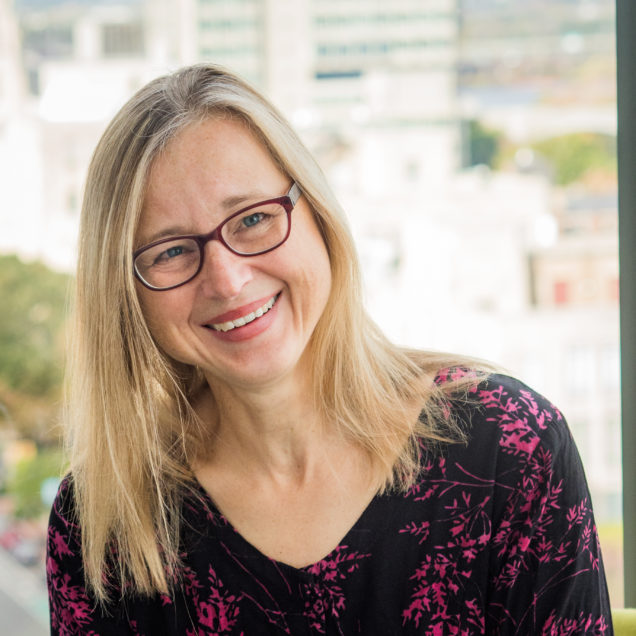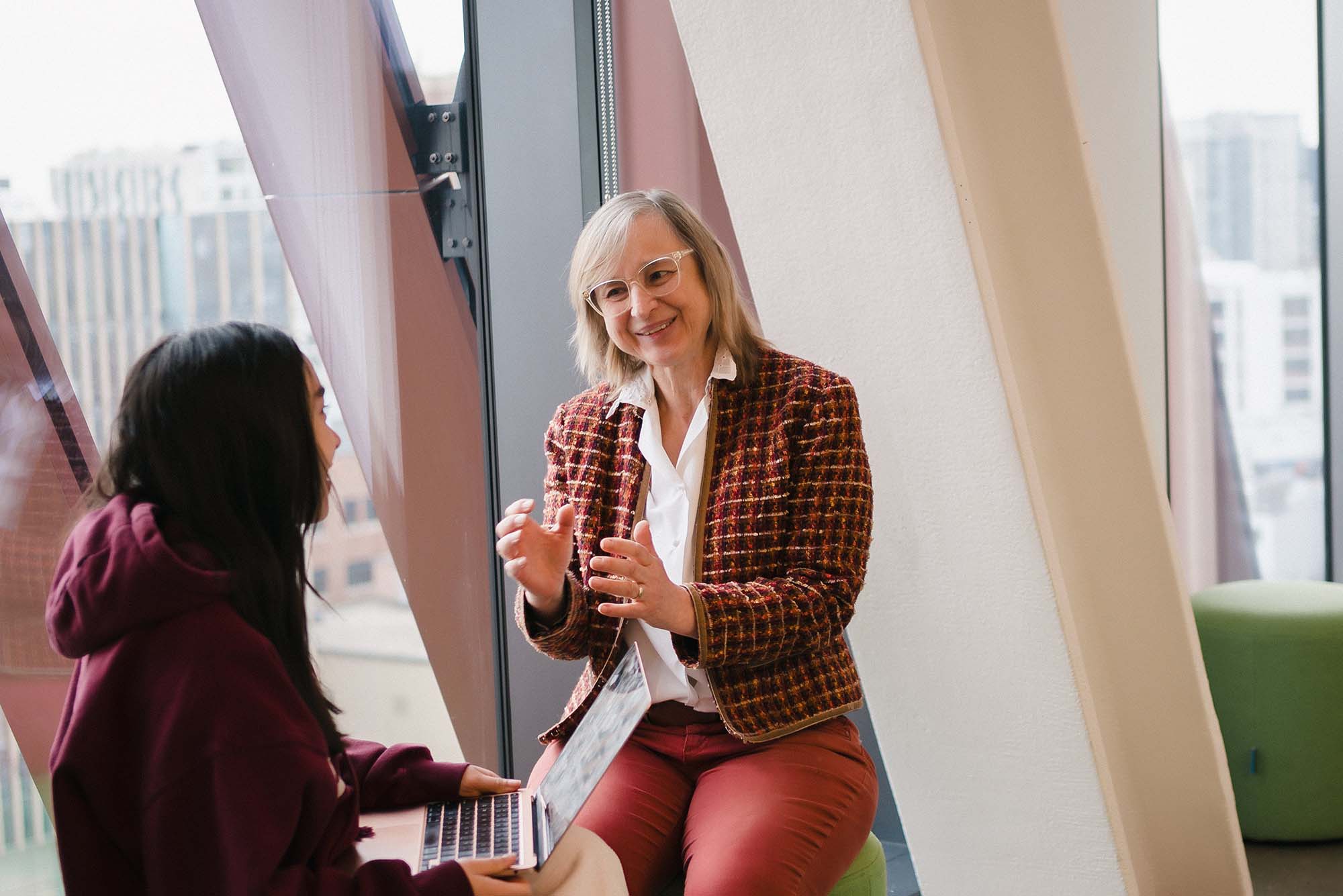Boston University’s Margrit Betke Remembered as a Brilliant Scholar, Devoted Mentor, Caring Colleague

“Margrit’s legacy lives on through the many students and colleagues she mentored and inspired,” says former student Sarah Bargal (GRS’19), now an assistant professor of computer science at Georgetown University. “I am forever grateful for her guidance, her brilliance, and her warmth.”
Boston University’s Margrit Betke Remembered as a Brilliant Scholar, Devoted Mentor, Caring Colleague
Computer science professor sought ways to use artificial intelligence to better society
A few days before Margrit Betke died in August, her hospital room was crowded with colleagues and students who flew in from across the country. Neighbors brought flowers from her garden, and her former PhD students held her hand. “It was a good life,” she told them. “You were my children.”
“So many people loved her,” says Diane Hirsh Theriault (CAS’04, GRS’15), a software engineer at Google. “There are many people that are where they are, or who they are, today because of the way she touched their lives and set them on the path that they ended up walking… I certainly count myself among the people who experienced Margrit as a motherly, nurturing, loving mentor who cared deeply about her students.”

Betke, a College of Arts & Sciences professor of computer science, member of the Faculty of Computing & Data Sciences, affiliated faculty member in the College of Engineering electrical & computer engineering, and core faculty member in the Rafik B. Hariri Institute for Computing and Computational Science & Engineering, died on August 13. She was a pioneering computer scientist, an award-winning researcher, a beloved mentor, and an advocate for using technology to improve lives.
“Professor Betke exemplified the very best of our academic community—a brilliant scholar, a devoted mentor, and a compassionate colleague whose work has left a profound impact on both science and society,” says Gloria S. Waters, Boston University provost and chief academic officer. “Her legacy will continue to inspire students and researchers at Boston University and beyond.”
“Margrit was truly an inspiration—positive, eager to help, and astute in her ability to advocate for positive change,” says Stan Sclaroff, dean of Arts & Sciences, who cofounded and co-led the Computer Science Image and Video Computing Research Group with Betke. “She leaves a legacy that will shape the future of artificial intelligence and the lives of those she inspired. She will be remembered for her kindness, vision, and the communities she built at BU and beyond.”

Betke applied cutting-edge computer vision techniques to a wide range of fields—from cybersecurity to neuroscience, social media to physical therapy, and healthcare to the environment. She developed human-camera-computer interfaces for people with severe disabilities, medical imaging algorithms for early cancer detection, machine learning models to predict stroke recovery, datasets to help neuroscientists study animal behavior, video-based ecological censusing for conservation, AI systems to automatically evaluate physical therapy rehabilitation exercises, interactive educational software, and more.
“What was really amazing about her and what I really liked about her was she was really willing to cross the bridge and try to understand what the application of computer science was to a particular field,” says Swathi Kiran, James and Cecilia Tse Ying Professor in Neurorehabilitation at Sargent College of Health & Rehabilitation Sciences, who collaborated with Betke. “She just had a way of trying to take a different approach and say, let’s look at this differently and see how we can try to solve this problem by analyzing a data set differently.”
And in all her research, she focused on helping people. When creating Camera Mouse, an assistive technology that enables people with severe motion impairments to communicate, Betke and her students brought in groups from the community—including middle school students and Girl Scouts—to experiment with the assistive software. The tool—which utilizes a computer webcam to lock onto and track a chosen section of the user’s face and links that person’s head movement to a cursor on the screen—has since transformed the lives of children and adults with medical conditions such as cerebral palsy, spinal muscular atrophy, ALS, multiple sclerosis, and traumatic brain injury.
“This kind of research matters to people and connects to their lived experiences,” says John Magee (GRS’11), provost and vice president for academic affairs at Clark University, who started working with Betke as a freshman in 1998, and later became a graduate mentee and collaborator. “I try to continue that legacy through community outreach and introducing first-year students to interesting research problems that they can dive right into working on. Her life’s work will be forever with me and her other students to pass on to the next generation.”
AI for Good
Betke also sought ways to use technology for the betterment of society. She worked to make AI more inclusive by enabling models that could work across diverse settings and populations and explored the role of AI in analyzing news and social media, addressing important issues of bias, equity, and ethics. She was a leader in cross-disciplinary initiatives such as the AI and Education Initiative at the Hariri Institute, exploring how AI can better support learning, including recent studies that used facial expressions to predict student math learning outcomes. She served as a principal investigator of large NSF-funded research projects, including development of intelligent tracking systems that reason about the group behavior, and on designing analytic methods for studying visual and textual public information, including news and social media.

“Her work exemplified what convergence in research is all about—a full decade before that term was coined,” notes Azer Bestavros, associate provost for computing and data sciences and William Fairfield Warren Distinguished Professor of Computer Science. “She always sought ways to use AI for the betterment of society and to improve the lives of people, and her ideas and work anticipated the AI for Good movement.”
“She was an early advocate for interdisciplinary collaboration, and her work in this area led to significant advancements across diverse fields, including human-computer interaction, medical imaging, and conservation ecology,” says George Kollios, a CAS professor and chair of computer science. “She deeply cared for her students and colleagues—especially junior faculty—always taking the time to support them through their academic and personal challenges.”
Betke was the driving force in the development of the Computer Science MS in AI program, which she later directed, and a proponent of the PhD program in Computing & Data Sciences. She codirected the Artificial Intelligence Research (AIR) Initiative at the Rafik B. Hariri Institute for Computing and Computational Science & Engineering and was a major contributor and leader in the BU Women in Science and Engineering efforts. And she was a prolific researcher, authoring more than 200 research papers, securing major research grants, and serving in leadership roles for top journals and conferences.
“Margrit was always there and eager to contribute in multiple ways, advising the Hariri Institute on many issues and serving as a trusted and thoughtful voice in making decisions for many of our programs,” says Yannis Paschalidis, director of the Hariri Institute and a BU College of Engineering Distinguished Professor of Engineering. “I personally have had the pleasure of collaborating with Margrit over many years, and I very much valued and appreciated her research contributions and her overall demeanor. She will be deeply missed, but her legacy and many achievements will continue to inspire us.”
“She was the one who opened the door of AI to me,” recalls Yiwen Gu (GRS’19,’25) one of Betke’s two current PhD students. “Margrit fostered an environment of intellectual freedom, allowing me to explore diverse research paths, yet always pointing me toward a viable direction whenever I faltered. I could not have reached this significant milestone without her.”
Dedicated to Her Students
Betke grew up in Germany’s Rhineland, in the town of St. Augustin. She graduated from the University of Bonn and earned her PhD in computer science and electrical engineering at the Massachusetts Institute of Technology. After graduation, she spent two years as a postdoc at the University of Maryland and then returned to Boston to join Boston College’s computer science department. She came to Boston University in 2000. She received the National Science Foundation Faculty Early Career Development Award in 2001 and in 2005 was one of two academic honorees of the Top 10 Women to Watch in New England Award by Mass High Tech.
And throughout her research, she remained dedicated to her students. She guided 20 PhD students, as well as numerous graduate and undergraduate researchers, and continued to read proposals and mentor students even in her final days. A few weeks before she was admitted to the hospital, she submitted a patent and a paper with former student Sarah Bargal (GRS’19), an assistant professor of computer science at Georgetown. And in July she won a Best Paper Award with student collaborators for a paper presented at the Annual Meeting of the Association for Computational Linguistics, “Insights into Climate Change Narratives: Emotional Alignment and Engagement Analysis on TikTok.”
“Even when I was publishing my first full research paper, she spent the whole night with me on a Zoom call editing my paper and making revisions so the paper was as close to perfection as it could be,” says Saurav Chennuri (GRS’23), who studied with Betke as a master’s student. “She is my moral compass in the kind of research work I would like to do and how I want to live my life. I will forever remember all her scoldings, guidance, and appreciation throughout my life and hopefully carry with me the short legacy she left with me.”

“Margrit saved my nearly failed PhD by welcoming me into her team, helping shape my research, and giving me the confidence to believe in my success,” recalls Mehrnoosh Sameki (GRS’17), a product lead at Microsoft and an adjunct assistant professor of computer science at BU. “She was a motherly presence in my life, encouraging me to dream bigger, apply for better opportunities, and speak up with confidence. Margrit was the source of enthusiasm and support I needed as a PhD student.”
Beyond her scholarship, Betke is remembered as a generous colleague and a strong advocate for women in science and engineering. She enjoyed dancing, gardening, figure skating, photography, reading, sailing, skiing, singing, sports, traveling, reading, and windsurfing. She sang in the MIT choir during graduate school, as well as in her church choir for many years. She took dancing classes at Boston University, learned Chinese on DuoLingo, and maintained a list of books in English and German that she recommended on her website. She adopted a formerly wild dog, Shilah, whom she met on a hiking trip in the Grand Canyon, and passed along a treasured guitar to a PhD student to restore and use.
Margrit was such an enthusiastic, kind, and professional colleague who inspired the best in everyone.
“Margrit was such an enthusiastic, kind, and professional colleague who inspired the best in everyone,” says Prakash Ishwar, an ENG professor of electrical and computer engineering and one of Betke’s collaborators. “She was passionate about utilizing her expertise for societal good. Her passing has left a huge hole in the minds and hearts of her students and collaborators.”
“Margrit was an inspiring and generous mentor and collaborator, and I feel fortunate to have worked with her,” says Joyce Wong, an ENG professor of biomedical engineering. “Beyond her research, she was deeply committed to supporting and uplifting others. She gave so much of her time and energy to the BU Women in STEM community. Her dedication, kindness, and brilliance touched everyone who knew her.”
Her legacy will live on through those she guided, mentored, and inspired, and in the words of Bargal, one of her mentees, “the community she built through her kindness, generosity, and unwavering support of others.”
“She was hardly speaking, but she told me she loved me and her other students like the children she never had,” Sameki says, recalling Betke’s final days. “I told her how much I owe who I am today to her…and she told me, now, it’s my turn to take other young women under my wing.”
A memorial service will be held on Saturday, September 20, at 10:30 am, at University Lutheran Church, 66 Winthrop Street, Cambridge, Mass. A Zoom link will be provided (and available on the church website, www.unilu.org) for those not able to attend in person.
Sydney Gross is Arts & Sciences assistant dean for communications; she can be reached at ssgross @bu.edu.
Comments & Discussion
Boston University moderates comments to facilitate an informed, substantive, civil conversation. Abusive, profane, self-promotional, misleading, incoherent or off-topic comments will be rejected. Moderators are staffed during regular business hours (EST) and can only accept comments written in English. Statistics or facts must include a citation or a link to the citation.